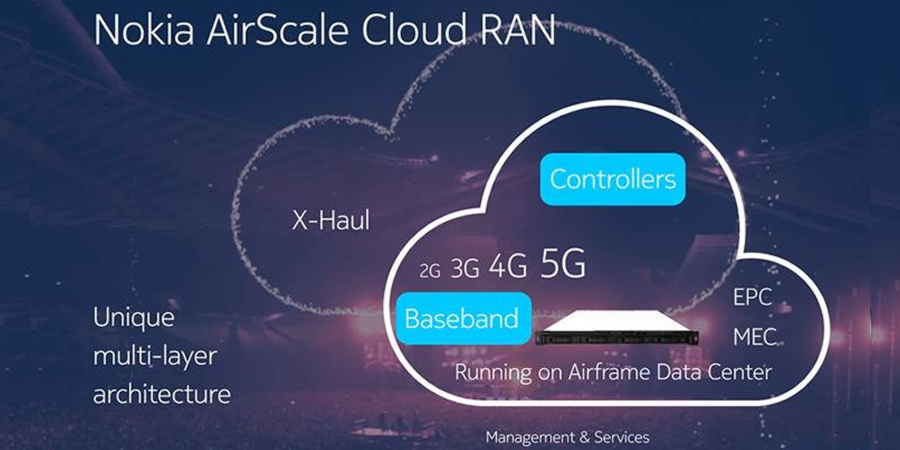Nokia and China Mobile have signed an MoU to investigate the potential of artificial intelligence (AI) and machine learning to optimize future networks and enable the delivery of new Edge Cloud and 5G services.
The companies will jointly establish a laboratory in Hangzhou, China to develop the demo system to verify technology use cases using Nokia 5G Future X architecture, while China Mobile will lead the research in terms of scenario selection, requirements confirmation, open API standardization and solution definition.
As massive and rapidly changing connectivity and coverage demands are placed on 5G networks by billions of IoT devices and a growing array of consumer services, networks will need to predict and respond to those changes in real-time. Under the new agreement, Nokia and China Mobile will work together to research the application of AI and machine learning to ensure any changes in demand are predicted and network resources are automatically allocated to meet all service demands with consistent high quality and reliability.
At the new laboratory in Hangzhou, Nokia and China Mobile will foster an open RAN and 5G ecosystem working with third parties to leverage AI and machine learning and optimize networks for the delivery of services such as cloud virtual reality gaming. The companies' research will use the Nokia AirScale Cloud RAN, AirFrame OpenRack, open edge server and ReefShark chipsets, as well as Nokia-developed AI middleware to access embedded intelligence. Nokia and China Mobile will also conduct technology field trials and demonstrations.
Yuhong Huang, Deputy General Manager of China Mobile Research Institute (CMRI) said: "China Mobile has been paying attention to the application of artificial intelligence for a long time, and making effort to build an open and collaborative 5G+AI ecosystem. With the signing of this MoU, weare pleased to t initiate the collaboration on the research of big data and machine learning technologies applying to 5G RAN network, and make joint effort in the O-RAN alliance which was kickoffed recently to enhance the intelligence of 5G network, reduce the complexity, and explore the new capabilities of network."
Marc Rouanne, president of Mobile Networks at Nokia, said: "The work we are doing with China Mobile is a prime example of how we can help our customers unlock the potential within their 5G networks using open interfaces and toolkits. The use of AI and machine learning will enable myriad new services opportunities and we are pleased to leverage the capabilities of our 5G Future X architecture to support China Mobile' AI research to optimize future networks and the delivery of many innovative new services."





